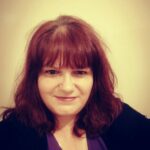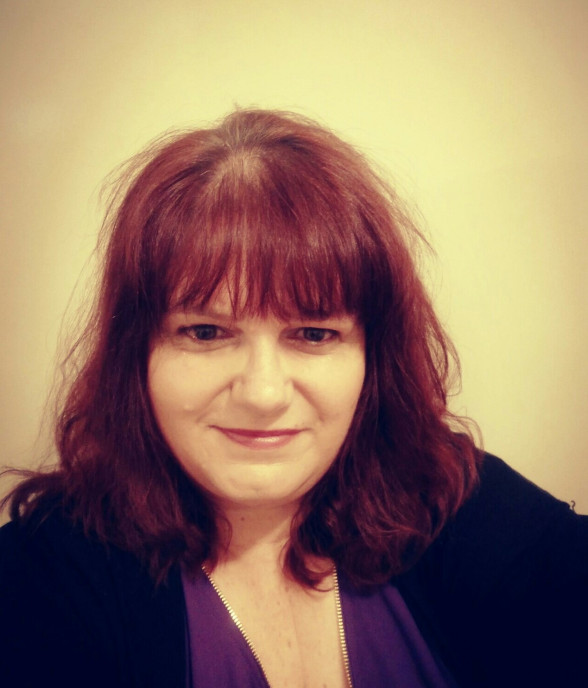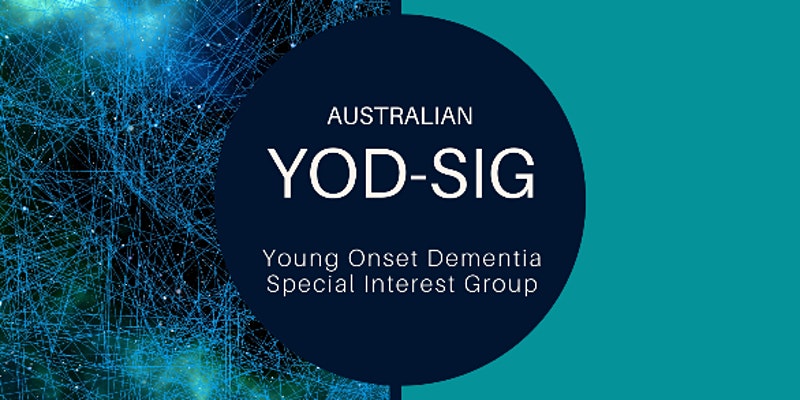Earlier this year, one of our members, Natalie Ives from Melbourne presented at the Australian Young Onset Dementia Special Interest Group's first webinar. Unfortunately, due to an IT issue on the day, it was not recorded well enough to upload tp YouTube, but Natalie has kindly agreed to share her full speech notes with us today.
Thank you Natalie.
 Hi and welcome to todays webinar!
Hi and welcome to todays webinar!
My name is Natalie ,I am a devoted mother of two daughters and a teacher by profession .
I am also an advocate and member for Dementia Alliance International, Dementia Australia, and the Australian Aphasia Association. Aside from these important roles, I love to travel; when we aren’t in lockdowns, as well as taking on different art projects in my spare time.
I will now discuss how my loooooooooooooong journey began from raising my teenage daughters , to now living with young onset dementia.
I first knew something was different with me when I would have trouble finding the right words to say, or think of them, especially when I had to fill out a form but couldn’t think of the right words.
Now this was different for me , as I had higher education and used to talk academically and writing essays relative ease.
The difficulty with my speech continued and I would start to use google or ask my girls for help when I had word blanks.
Gradually ,I started noticing changes in my spacial awareness.
Crossing the road would sometimes be difficult as I would not be able to judge the right point of when to cross . Which my daughters would help me do. Now its funny how my girls had to tell me when to cross the road, as their mother , it was my job to teach them how, not the other way around!
This is when things started to look serious when we moved into our new home and I would start forgetting basic tasks liken how to use my phone or how to cook meals that I cooked effortlessly.
One day, my girls were out with friends during the summertimes I was home alone keeping out of the heat. I had put some eggs pan to boil to make sandwiches later , and that’s when I went blank. All I remember after that was my family friends hovering over me with the paramedics behind them.
I was told later on by family that I had called my daughters in a panic, unable to speak coherently and was not myself .I didn’t know my name or much else about myself at the time when the paramedics were looking at me.
Then I was taken to sunshine hospital and taken to a ward; the paramedics had suspected that I may have had a stroke, so the doctors looked into that .I was poked and prodded, taken up and down for scans to see what could have happened. All of this I don’t remember much, only what I have been told.
I was kept over night for supervision ,but released the following day.the doctors didn’t know what was wrong with me , and let me go with a referral to see a neurologist shortly after.
They said to come back to the hospital if anything should happen again.
unfortunately it did happen again, and I want back to hospital as instructed ,but they said nothing was wrong with me and that I wasted their time calling the ambulance. I was left in the emergency room for 6 hours and was given a script for epilepsy meds (as I found out from my GP)
My GP was supportive of me throughout the whole journey . I went to her to discuss what had happened at the hospital, and to find out if she could get some results from all the tests.
She called and found out that day I went to the hospital that first timer had brain swelling and was not told about it .
After all this all this, I felt alone. I felt. I wasn’t being Hurd or trusted by all these people who were supposed to help.even they didn’t believe at the time . Some of the doctors needed a course in sympathy and effective communication with human beings .
Terms such as migraines and anxiety were thrown around by the doctors as an easy way of explaining what was wrong with me , since they didn’t know .the neurologist from before said I had mild cognitive impairment and that I should see a nuropsych .from that nothing was concrete .
I was referred to see a psychologist .
If that wasn’t enough the psychologist told me I shouldn’t be there as I wasn’t dealing with mental health issues.
I was left with no where to go
I had to search by my self for a solution
I went back to my GP to discuss all of the things that had happened, which was a wise move as she is a proactive doctor .
I was now being looked after a medical profession who believed me and wanted to help.
The diagnosis of mild cognitive impairment was a umbrella term for dementia, or young onset in my case. A friend of mine with the same condition suggested I contact Dementia Australia ,which I am here with today. I have now been with them since 2019 and now I’m involved with Dementia Alliance International .
I’ve been able to find support I needed through the friendships I have built with people like me who have had a lived experience with dementia.
Recently on my journey I have been diagnosed with my speech pathologist with primary progressive aphasia ,which she said was quite clear from the initial phone call.
All these diagnoses have helped me understand what is going on with me.i finally feel herd and some of my concerns have been validated .which has reduced my stress heaps .
This journey has been hard , but with the support of my family and friends; a few special doctors; dementia Australia and dementia alliance international ,I am able to embrace my new life living with dementia and aphasia .
From my lived experience, I have a want for change. I want other people who will go through what I have in the future to be supported by the medical community. Dementia and other related issues aren’t taught to doctors of medicine.i believe there needs to be education on these issues within the medical community, so others like me who had no idea what was wrong with them can feel heard and supported.
Please support more people like Natalie who live with dementia by donating to DAI today.

